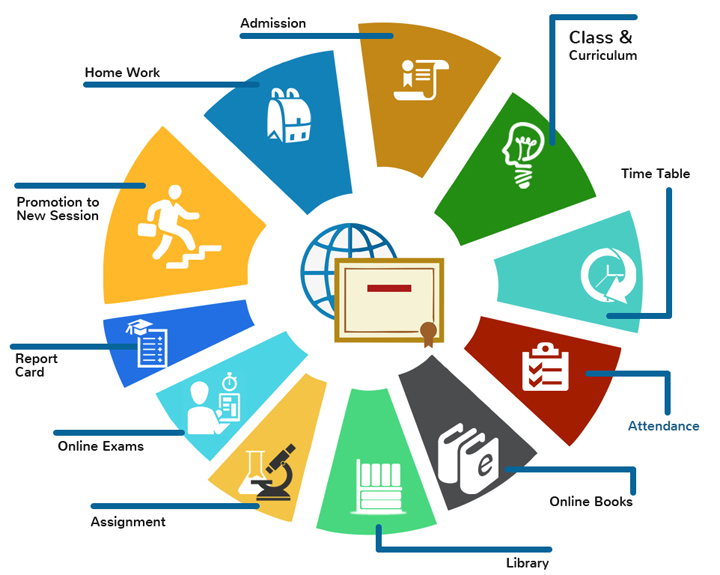 Civil Engineering with Computer Application | Electronics and Computer Science | Robotics & Artificial Intelligence |
Civil Engineering with Computer Application | Electronics and Computer Science | Robotics & Artificial Intelligence |
Important Documents For Admission (2025 - 2026)
 Civil Engineering with Computer Application | Electronics and Computer Science | Robotics & Artificial Intelligence |
Civil Engineering with Computer Application | Electronics and Computer Science | Robotics & Artificial Intelligence |

The trends and paradigms of management have evolved dramatically over the centuries. From a loosely connected network of a few business bodies, the industry of management has become a consistently prospering world with tightly knitted networks of dynamic categories of business organizations. The current management industry significantly differs from how the industry of the management used to work before. Aspects like corporate culture, business etiquettes, competitiveness, peripheral knowledge, and skills hold high value in today’s world of management. This is the reason why the league of next-generation management education students needs to build aptitudes and abilities encompassing all these aspects. This is exactly where the need for experiential learning.
The application of theory and educative contents to real-world practices is highly imperative, and that is exactly what experiential learning helps students accomplish. It bridges the gap between academic and the professional world making the entire journey much more accessible and fluent. Experiential learning also extends the learning space beyond classrooms and helps to keep the interests and curiosities of students high. The methods of experiential learning are used in various programs nowadays, but the requirement for it is crucial in management education in today’s time. Briefly demonstrated below are some of the key avenues of experiential learning that are in sheer demand today.
Management Internships–Internships are a standard form of experiential learning that is being widely used by the leading management institutions to encourage students to broaden their horizons. An internship does not only allow students to gain new knowledge and skills but also enable them to gain valuable work experience. Students also use internships as a pathway to step into their future careers.
Extended Practicums in Business Management– Practicums involves the application of previously learned theories in management programs. Students independently work on certain projects that they can choose by themselves. These projects are supervised by educators if required. Practicums help students to build new skills, attain the ability to solve intricate problems, network with industry people, and more. It acts as an ideal resume booster in their management careers.
Fieldworks– Fieldwork is an integral part of management education nowadays. Students attain the opportunity to implement their skills and insight in a real-world environment. This way students get to get thoroughly acquainted with the industrial norms, strategies, and etiquettes in a much more accurate way. Being a part of a number of field works allows students to lead ahead of time and proceed with full conviction in the long run.
Volunteering– Management students also get the opportunity to volunteer in external organizations during their courses. This is a very familiar concept in project management programs, and students get to polish their existing proficiencies and skillsets with the help of this process. They can also attain an overall idea about the core functionality of the organization, recruitment, retention, and more.
Team projects – Management students are often assigned team projects instead of individual projects. There is a basicmotivebehind this. Management professionals requiredealing and working with employees, clients, and customers almost ninety-percent of the time. Their job role is highly dynamic, and this is exactly where the sheer need for team-based projects comes into play. Engaging them into team-based projects provides students with a basic idea about how to effectively communicate with fellow teammates, handle complex situations, and understand customer psyche to make sounder decisions.
Industry exposure – This is one of the most significant aspects of management education and is categorized as a key avenue of experiential learning. Without adequate industry exposure, management education training would hardly hold any value in today’s highly competitive industry.Leading b-schools thus offer placement facilities to students and collaborate with top-notch organizations to bring the best opportunity to graduates. However, the concept of industry exposure is not merely confined to placement facilities in today’s time. Top B-schools even invite real-world business executives and leaders to their campuses who share valuable insights and pieces of their years of experiences in the industry.
We, at the Indore Institute of Management and Research (IIMR), ranked among the Top b-schools in Madhya Pradesh, pace along with the most sought-after market trends of the management industry to prepare our students not only as capable professionals but as exemplary leaders with a futuristic mindset. With a combination of contemporary teaching aids and pedagogies, we aim to bring out the best in our students and help them utilize the same in the real-world industry. Weconstantly provide our students with opportunities to learn and explore the crucial areas of management practices and encourage them to independently utilize the learned skills in practical projects, team workshops, case studies, and field works. We are gratified to being able to produce the generation of the responsible management professionals who are sharply aware of the corporatizing industrial environment and are contributing beyond hard work to organizations. Indore Institute graduates have made us proud by turning out to be assets for top-notch organizations today, and we look forward to earning more pride and esteem with the rolling of years with immense hopes in our heart.